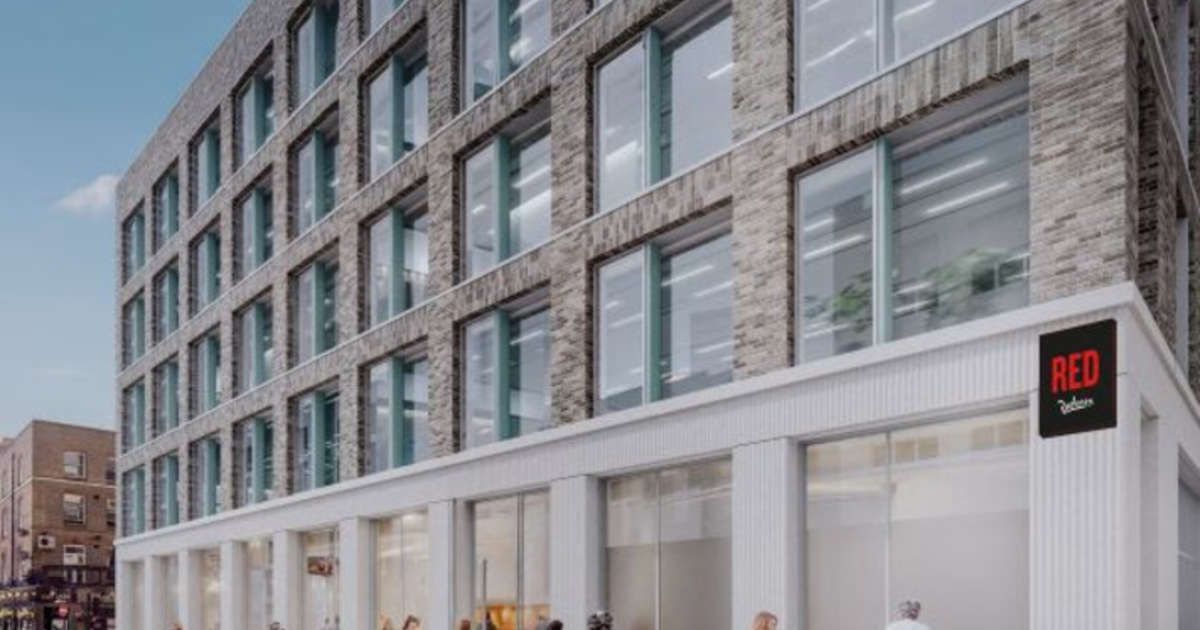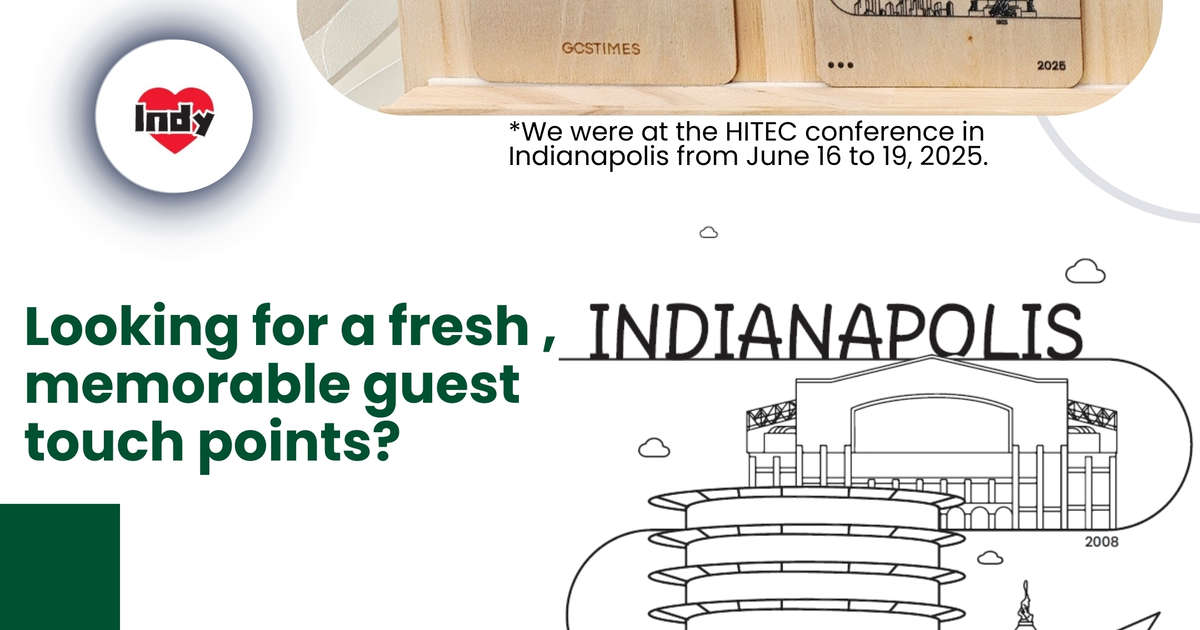
Medical and other curios on display in the Welbeck Hotel’s lobby, Marylebone, London.
Carlron Reid
The recent refurbishment and rebranding of a 120-year-old central London hotel enabled the new owners to incorporate sustainable features, such as occupancy-based controls and reduced-flow showers, measures that may not be noticeable to guests but which reduce CO2 emissions and costs. In short, doing well by the planet saves money.
The refurb “wasn’t just some new wallpaper and a lick of fresh paint,” said Simon Hall, the general manager of the Welbeck Hotel near Carnaby Street, Marylebone. “The hotel has been completely rewired, with every bedroom replumbed. We’ve got new showers, new bathrooms; everything within the building has been renewed and refurbished.”
Welbeck Street is within London’s “medical quarter.”
Carlton Reid
The Edwardian-era, 164-bedroom hotel was previously a lackluster midmarket Holiday Inn. It’s now independently owned and pitched as a four-star-plus lifestyle boutique hotel. It’s in London’s medical quarter, close to Harley Street and several leading medical institutions; Welbeck Street also has medical history of its own—curios in the lobby flag this medical connection and today’s association with wellness.
“The refurbishment meant we were able to look at how we could bring in newer, greener technologies,” continued Hall. “Even simple things—such as occupancy-based controls like passive infrared sensors in the corridors so that the lights aren’t on all day—make us more sustainable. Our upgraded building management system enables us to control ventilation, air handling, heating, and cooling all centrally. The new plumbing has allowed us to have reduced flow showers, which don’t affect the guest experience but use a lot less water.”
The strip-back to the studs “allowed us to look at all sorts of ways that we can be more sustainable within the confines of what is a 120-year-old building,” said Hall. The property dates back to the early 1900s when it opened as the Welbeck Place Hotel.
Exterior of the Welbeck Hotel, London.
Carlton Reid
Welbeck Street has a two-hundred-year history of housing physicians, hospitals, and wellness practices. Physician—and polymath—Thomas Young established his surgery in 1799 at Number 48 Welbeck Street and went on to research the mechanics of the eye, and much else. In a different era, tropical medicine expert Sir Patrick Manson lived at Number 50. The street has also housed institutions such as the Welbeck Street Hospital for Diseases of the Nervous System and the British Institute of Radiology; nearby, there is the Edwardian-era building housing the Royal Society of Medicine, constructed not long after the Welbeck Place Hotel.
{ if (!response.ok) { throw new Error(‘Network response was not ok’, preloadResourcesEndpoint); } return response.json(); }) .then(data => { const cssUrl = data.css; const cssUrlLink = document.createElement(‘link’); cssUrlLink.rel = ‘stylesheet’; cssUrlLink.href = cssUrl; cssUrlLink.as = ‘style’; cssUrlLink.media = ‘print’; cssUrlLink.onload = function() { this.media = ‘all’; }; document.head.appendChild(cssUrlLink); const hls = data.hls; const hlsScript = document.createElement(‘script’); hlsScript.src = hls; hlsScript.setAttribute(‘defer’, ‘1’); hlsScript.setAttribute(‘type’, ‘text/javascript’); document.head.appendChild(hlsScript); }).catch(error => { console.error(‘There was a problem with the fetch operation:’, error); }); } } loadConnatixScript(document); ]]>
Part of the IHG Hotels & Resorts group, today’s Welbeck Hotel supports local wildlife with the use of wildflower planters. It has achieved a BREEAM Excellent rating for its energy efficiency, waste reduction, and environmentally responsible operations. A partnership with The Felix Project, London’s largest food redistribution charity, is part of the hotel’s dedication to social responsibility.
Being green and a caring neighour is “good business,” said Hall. “It’s win/win for the guests, win/win for the planet, and win/win for our bottom line.”
And working with the Felix Project is also mutually beneficial.
“Aside from food donation, we’ve also donated non-food items, things like toiletries and crockery for people that don’t have it,” said Hall. “Many of our staff also volunteer for the project, helping at depots or collecting food from local businesses. There are so many ways we can work with them as a business; it’s not just about writing a check—we can get involved. That’s a real driver of our team’s engagement and purpose, knowing that they’re supporting their local community.”
Eco acceditation
Sustainability is being incorporated into the wider hospitality industry’s overarching strategies and day-to-day operations. And well it might because hotels—most especially luxury hotels—are significant users of finite resources, and those hotels that go green often quickly see financial returns.
According to Global Real Estate Sustainability Benchmark data, hotels have the highest energy intensity at 293 kWh/sqm compared to sectors such as office (181 kWh/sqm), retail (152 kWh/sqm) and residential (124 kWh/sqm).
Most industries, organizations, and investors are committing to sustainability not out of supposed “wokeness” but because it can generate significant cost savings and lead to a greater longer-term valuation of assets.
Travelers are also increasingly seeking sustainable practices and expect hotels to pay more than lip service to environmental factors. Tiny shampoo bottles are no longer seen as cute freebies by many travelers but as profligate waste when refillable larger containers make more environmental sense.
When planning trips, more and more travelers prioritize eco factors. A recent Virtuoso survey found that nearly 60% of tourists are willing to pay more for hotels that have sustainability goals. But with a sector flooded with messages such as “certified green” and “climate positive,” how can travelers discern which hotels are genuinely committed to responsible practices?
Benchmarking, that’s how. But there are many competing schemes, and it’s tough to know which ones are independently audited and which are self-certified greenwashing.
Benchmarking
Hotels are businesses, and the biggest are usually owned—or operated—by groups. Traditionally, hotel management agreements, or HMAs, lead on financial performance, but hotel owners and operators increasingly use new, greener HMAs to hold each other accountable to ESG targets.
Some of these targets are set internationally via legislation. For instance, the European Union’s new Corporate Sustainability Reporting Directive (CSRD) now requires travel-related businesses of a certain size operating within the EU to publish environmental and social impact reports.
These will unlikely be consumer-friendly so hotels will prefer to use benchmarking badges in their front-of-house promotions.
To increase access to consistent sustainability data and support the certifications industry, Travalyst, a non-profit founded by Prince Harry, The Duke of Sussex, has a list of 49 certifications, standards, and schemes that it says will make the sustainability certifications space more straightforward to navigate.
Internal and third-party green benchmarking schemes have increased in recent years, with some offering little more than pretty website badges and wall plaques. Others are more stringent, providing trustable certifications.
Many online booking platforms now highlight those hotels certified for sustainable tourism. However, some of these paid-for eco-labels are tougher to pass than others.
Selected schemes
Green Globe and Biosphere Sustainable stress that businesses—and regions—in their schemes must meet the environmental and social standards aligned with frameworks like the UN’s 17 Sustainable Development Goals and 169 specific targets outlined by the UN. Green Globe’s standards—measured on 44 criteria and 380 indicators—also align with international frameworks such as those curated by the Global Sustainable Tourism Council (GSTC).
Membership-based Beyond Green steers eco-minded travelers towards high-end hotels that have undergone third-party audits and can demonstrate measurable and positive impact, with hotels vetted for their preservation of natural and cultural heritage, and their impact on the economic and social well-being of local communities, as well as alignment with the UN’s Sustainable Development Goals.
B Corp measures a company’s social and environmental footprint. To become certified, companies are scored on categories including employee treatment and “stewardship of its customers.” Businesses must achieve an assessment score of at least 80 out of 200 points to be approved; most companies fail to reach even a score of 51.
Regenerative Travel certifies hotels with a deep commitment to sustainability, continuous improvement, environmental stewardship, and community and economic resilience. A certain percentage of staff must be local, and there’s a target for energy generated from clean sources.
EarthCheck says it is “the world’s leading certification, consulting and advisory group for sustainable destinations and tourism organizations” and delivers “science-backed, strategic and sustainable outcomes.”
Green Key Global also aligns with the UN’s Sustainable Development Goals and emphasizes land use, water conservation, indoor air quality, and building infrastructure. Green Key is the eco label used by Welbeck Hotel.

